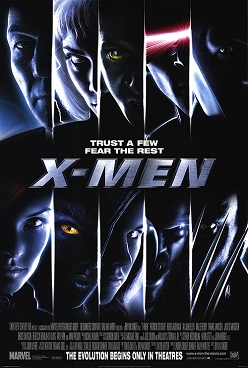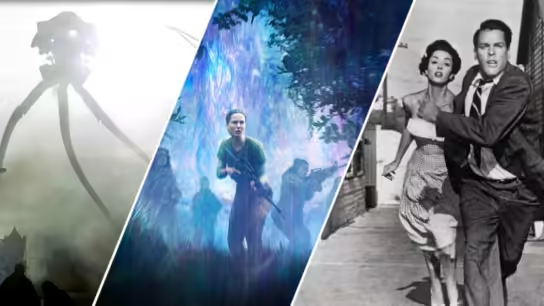The X-Men movie franchise is one of the most significant and enduring series in the realm of superhero cinema. Spanning nearly two decades, these films have brought to life the beloved characters from Marvel Comics, offering a mix of action, drama, and social commentary. Here’s an in-depth look at the evolution of the X-Men movies, their impact, and their legacy.
The Origins of the X-Men on Screen
X-Men (2000)
The journey began in 2000 with Bryan Singer’s “X-Men,” a film that set the stage for modern superhero movies. It introduced audiences to Professor Charles Xavier (Patrick Stewart) and his School for Gifted Youngsters, as well as his long-time friend and adversary, Erik Lehnsherr, also known as Magneto (Ian McKellen). The film was a commercial success and received praise for its mature tone, strong performances, and social allegory about prejudice and acceptance.
X2: X-Men United (2003)
Building on the success of the first film, “X2: X-Men United” delved deeper into the characters’ backstories, especially Wolverine (Hugh Jackman). It also explored themes of government mistrust and genocide, with a gripping plot involving William Stryker (Brian Cox), a military scientist with a vendetta against mutants. The film was lauded for its complex narrative and character development.
X-Men: The Last Stand (2006)
Directed by Brett Ratner, “X-Men: The Last Stand” aimed to conclude the trilogy but received mixed reviews. The story, inspired by the “Dark Phoenix Saga” and “Gifted” storylines from the comics, attempted to juggle multiple plotlines, including a mutant cure and Jean Grey’s transformation into the Phoenix. Despite its ambitious scope, the film was criticized for its pacing and character arcs.
Expanding the Universe
X-Men Origins: Wolverine (2009)
This spin-off focused on Wolverine’s origin, exploring his past and the Weapon X program. Directed by Gavin Hood, the film was met with disappointment due to its weak plot and deviation from source material, despite Jackman’s compelling performance.
X-Men: First Class (2011)
Reinvigorating the franchise, “X-Men: First Class” served as a prequel, directed by Matthew Vaughn. Set in the 1960s, it showcased the early days of the X-Men and the friendship between Xavier (James McAvoy) and Magneto (Michael Fassbender). The film was praised for its fresh cast, stylish direction, and historical context.
The Wolverine (2013)
James Mangold’s “The Wolverine” took the character to Japan, drawing inspiration from the 1982 comic arc by Chris Claremont and Frank Miller. The film was noted for its character-driven narrative and exploration of Wolverine’s vulnerability, though it faced criticism for its third act.
X-Men: Days of Future Past (2014)
Combining the original and prequel casts, “X-Men: Days of Future Past” was directed by Bryan Singer and based on the iconic comic storyline. It featured time travel, with Wolverine sent back to the 1970s to prevent a dystopian future. The film was a critical and commercial success, praised for its complex plot and uniting of different timelines.
X-Men: Apocalypse (2016)
Bryan Singer returned to direct “X-Men: Apocalypse,” featuring the ancient mutant En Sabah Nur (Oscar Isaac) as the antagonist. Set in the 1980s, it introduced younger versions of familiar characters like Cyclops (Tye Sheridan) and Jean Grey (Sophie Turner). Despite its grand scale, the film received mixed reviews for its over-reliance on CGI and uneven storytelling.
The New Era
Logan (2017)
James Mangold’s “Logan” marked a significant departure from previous films, presenting a gritty, R-rated take on Wolverine’s final journey. Set in a bleak future, it portrayed an aging Logan and a mentally unstable Professor X caring for a young mutant, Laura (Dafne Keen). The film was acclaimed for its mature tone, emotional depth, and Jackman’s powerful performance, solidifying it as a standout in the series.
Dark Phoenix (2019)
“Dark Phoenix,” directed by Simon Kinberg, attempted to retell the Dark Phoenix saga. However, it suffered from a troubled production and mixed reviews, with criticism directed at its pacing, character development, and handling of the iconic storyline.
The New Mutants (2020)
Originally intended as a horror spin-off, “The New Mutants” faced numerous delays and mixed reviews. Directed by Josh Boone, it introduced a new set of younger mutants but struggled to find its footing amidst genre shifts and production issues.
The Legacy and Future of the X-Men
The X-Men movies have left an indelible mark on superhero cinema, blending action, drama, and profound social commentary. The franchise has addressed themes of discrimination, identity, and acceptance, resonating with audiences worldwide.
With Disney’s acquisition of 20th Century Fox, the X-Men are set to be integrated into the Marvel Cinematic Universe (MCU). Fans eagerly anticipate how Marvel Studios will reboot and reintroduce these beloved characters, ensuring their legacy continues to evolve and inspire future generations.
Conclusion
The X-Men movie franchise has traversed a remarkable journey, from pioneering modern superhero films to exploring complex narratives and character arcs. While not without its missteps, the series remains a cornerstone of the genre, celebrated for its ambition and depth. As the mutants prepare to join the MCU, the future looks bright for Xavier’s gifted youngsters and their ongoing battle for a world that fears and hates them.





